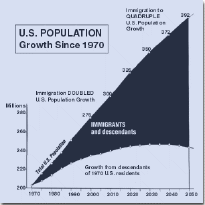|
![]()
Libertarian controls on guns, drugs, prostitution, immigration, etc., via private streets: how to be more libertarian and less alarming than the no-control fetishists
![]()
J. C. LESTER
ALARMING AND UNLIBERTARIAN POLICIES
It is often argued by libertarian types that there should be No Controls on this or that. The argument usually combines two factors: the supposed evidence that the controls are disastrous; and the supposed axiomatic fact that the repeal of state legislation must be more libertarian (though the latter point seems to oblige more-libertarian-than-thou types to ‘stick to their guns' whatever the consequences). My chief contentions here are that many No Controllers are conceptually confused and that this confusion often causes them to argue for alarming and unlibertarian policies: policies that defend not liberty but licence, that is, having the power to infringe the liberty of others.
The market gives us anarchic controls, polycentrically achieved, rather than no controls at all. The libertarian solution to clashes in preferred controls is to allow people to choose to live in areas which operate their preferred rules, or to set up such areas if they do not already exist (by joining with like-minded people to buy up the land). This is libertarian because it is not done by aggressively imposing one's own preferences on other people.
AGGRESSIVELY IMPOSED TOLERANCE
While the streets are owned by the state, it is impossible to opt out of whatever controls the state imposes on those streets. Moreover, the state cannot avoid imposing its own controls on many things, including guns, drugs, prostitution, and immigration. Whatever the state says about these matters, it will be aggressively imposing its Procrustean regulations on all the subjects in the country it occupies. Even if the state were to say that there are No Controls it would in reality be saying that it would aggressively impose a tolerance of all these things over its entire territory. Perhaps it would be more libertarian for the state to impose a universal tolerance of some of these things than for it universally to restrict them. But that would still only be a crude approximation to what the more libertarian market would have provided if left to itself. There would be no way that one could keep these things away from where one lives. This is the crucial point: state-imposed tolerance is itself a state-control and one that will impose on many people who would have opted out given a free-market, libertarian choice. It seems likely to me that, for instance, most parents of young children would prefer to opt for residential areas that restrict some of the above things. If so, then to impose the tolerance of them is to infringe the liberty of those parents.
The only fully libertarian position is to advocate that the state gets out of the way completely by privatising the streets, so that people can make their choices at the available competing prices. However, while the state does own the streets, there are at least less bad things that it can do. Libertarians should also want to be practical in the short term, for there will surely only be a series of practical short terms that leads to libertarianism (as there will not be a libertarian revolution in the violent sense, I believe and hope). So libertarians ought to suggest that the state at least tries to approximate to the market outcome, given that we can have some rough idea of what it is.
‘APPROXIMATING TO THE MARKET OUTCOME' VERSUS ‘PROMOTING THE PUBLIC INTEREST'
It is often impossible to guess the market outcome. Is ‘approximating to the market outcome' not hopelessly vague? Compared to the real market it is vague. But to opt for something like ‘promoting the public interest' instead is precisely to drop the distinctively libertarian insight that it is market outcomes that are, apart from being libertarian, most likely to be in the public interest. ‘Promoting the public interest' is so vague that every ideology that is not positively misanthropic, such as some Green extremism, can claim to be using it as a ‘criterion'. It is about as nebulous as ‘being guided by what is good'.
On certain issues the approximate market outcome is not so controversial. The market would certainly provide us with traffic rules for our safety and convenience. It would obviously be ridiculous to advocate No Traffic Control along the lines that a spontaneous order will evolve — though to be consistent the No Controllers ought to do this. Some kind of order would evolve, but it requires private property to evolve such rules efficiently. The common property that is effectively being advocated here is more likely to result in varieties of the ‘tragedy of the commons'. Neither do No Controllers normally advocate that the state allow people to carry around nuclear bombs or to have them at home. These things are obviously too dangerous to the innocent.
 THE UNCLEAR CONSEQUENCES OF REPEALING GUN CONTROL
THE UNCLEAR CONSEQUENCES OF REPEALING GUN CONTROL
With some other issues the most libertarian state policy is often less clear. In the case of guns, the No Control fetishists do not always seem to know whether they would want them no matter what the consequences. But surely gun murders and maimings are themselves infringements of freedom. Whether the repeal of existing state legislation on guns would be more libertarian just depends on the consequences. When looking at the evidence, the consequences are far from clear to me. It is very hard to compare across cultures (the USA is hardly homogeneous itself) or times (as L P. Hartley wrote, "the past is another country"). Society in the UK has changed since the gentle times before the First World War when it was safe to allow guns to be completely legal. Imagine the road rage or football hooliganism we have today but with guns freely available. Society is simply much more violent today, partly thanks to the lack of serious punishments for violent crimes. Shotguns did have a fairly safe record when they were (relatively recently) banned in the UK, but surely it is handguns that are more tempting to carry around. Switzerland is full of guns still and reputedly safe (though I have heard this disputed), but then the Swiss are a highly law-abiding people who will not even cross an empty road until the crossing light allows them to do so. It might be more libertarian for the state to allow a little competitive variety, which would also approximate to the market in action to some degree, rather than to opt for any particular imposition. In a free market there would still be some areas where guns would almost certainly be available, such as in the countryside and at firing ranges.
 FREEDOM-WRITERS RATHER THAN FREEDOM FIGHTERS
FREEDOM-WRITERS RATHER THAN FREEDOM FIGHTERS
One bizarre defence of imposing universal gun tolerance can be rejected more easily. This is the idea that libertarians will need guns either for some kind of libertarian revolution or to protect a libertarian anarchy from a reactionary statist takeover. As Etienne de La Boetie and David Hume clearly saw, the fundamental rules of society rest on public opinion. It is not possible for a handful of people with a few weapons to impose a fundamentally different social system than what the majority understand and want. That is why all reasonable libertarians are freedom-writers rather than freedom fighters. We need to capture the hearts and minds of the majority to approach a stable society where market-anarchy has become common sense. (Though I do not intend by this to rule out the defiance of illiberal state commands on many issues.)
 HOW TO LIMIT IMMIGRATION
HOW TO LIMIT IMMIGRATION
On the issue of immigration controls, the practical short-term solution seems highly problematic, at least to me. With fully private streets and without tax-funded handouts, a new and advantageous migration equilibrium would soon be established. The poor of the entire world would certainly not want to come to cold, rainy Britain. In the meantime, though it might be more libertarian on balance, it cannot fully be libertarian to abolish immigration controls while those who want to keep the potentially troublesome immigrants at a distance cannot do so. And while there are tax-funded handouts it is not clear whether it would be more libertarian to limit immigration or to allow it in the hope that it would undermine the system of handouts (I tend to favour the latter policy).
 VOLUNTARY SEGREGATION VERSUS COMPULSORY RACIAL INTEGRATION
VOLUNTARY SEGREGATION VERSUS COMPULSORY RACIAL INTEGRATION
By analogous argument, we do not need a nationwide curfew on the young, as one Labour MP recently suggested. But a lot of older people would be relieved to be able to move into areas where they knew that noisy youngsters, young thugs, etc., could legitimately be excluded. Sometimes people would be racially excluded. Compulsory racial integration, as currently imposed by the state, is possibly a greater evil than compulsory racial segregation: forcing people together when at least some of them would rather keep apart is more likely to result in violence. Voluntary segregation, thanks to private estates, is increasingly avoiding a lot of racial conflict in the USA. Such freedom of association is a basic civil liberty and not a privilege of any particular group. Fundamentalist Muslims can have areas that deny access to non-Muslims, or even enforce Islamic law, on this libertarian basis. Of course, none of these things is ‘immigration control' in the nation-statist sense; but we might say that they are the libertarian translation and even extension of such control.
THE SUPERIORITY OF VOLUNTARY SOLUTIONS VIA PRIVATE STREET CONTROL
Simply to repeal state legislation would, on many issues, be to impose the contrary unlibertarian error on everyone. In the cases under discussion, the general libertarian position must be to emphasise the superiority of voluntary solutions via private street controls, or at least of approximating to such a system. It is not libertarian to force people to put up with all manner of things they are highly concerned to avoid. That is authoritarian.
Further reading:
|
|
|
|
|